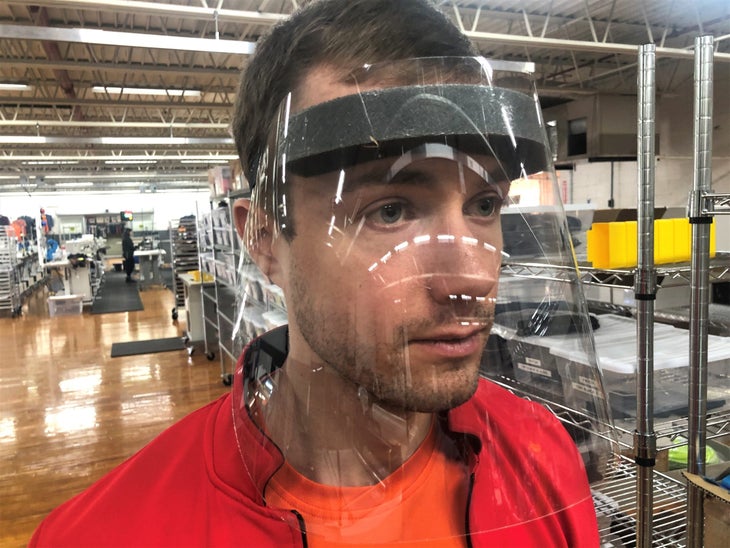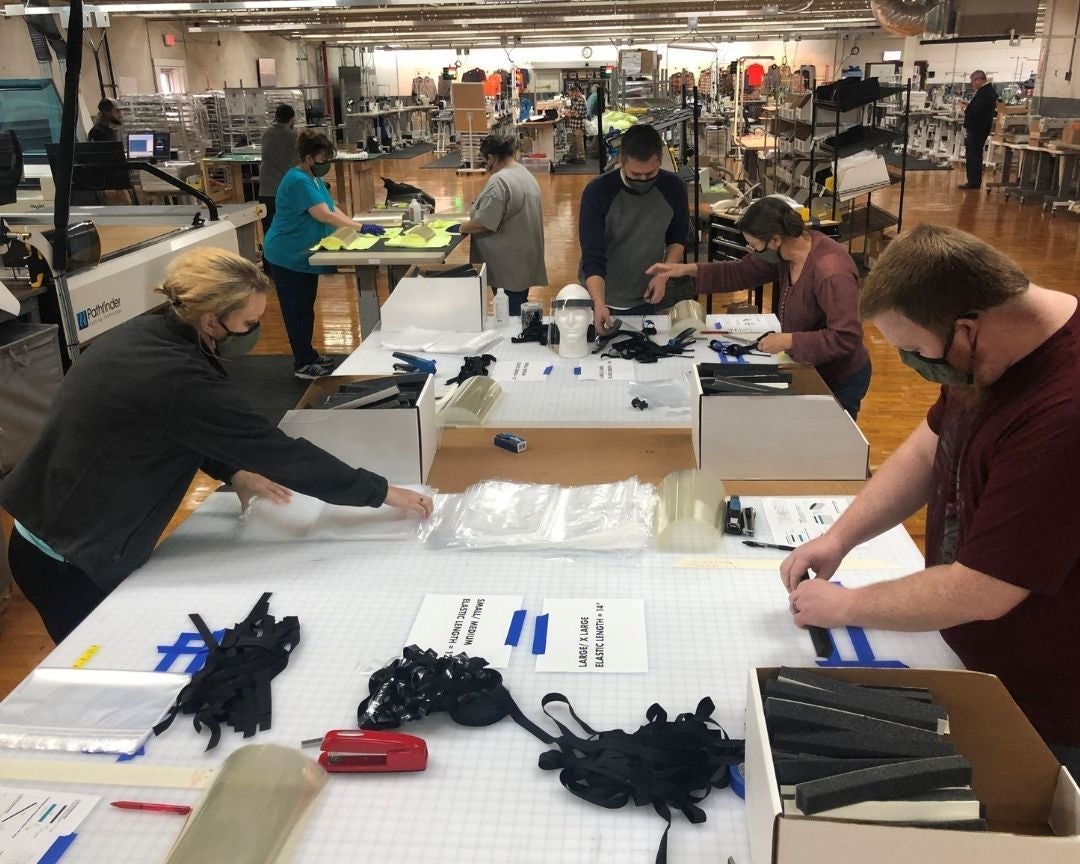It’s no surprise to learn that David Billstrom,聽the CEO of Kitsbow, worked as an EMT for 38 years before taking over as head of the premium cycling apparel company in Asheville, N.C. As the coronavirus emergency has developed in recent days,聽Billstrom has responded with the speed and calculation of someone used to dealing with medical crises.
“I always knew that if there were a national disaster, I would be of service,” Billstrom said. “I just never thought that that service would be inside an apparel factory rather than a firetruck.”
Kitsbow聽moved its manufacturing headquarters from California to North Carolina just five months ago and adopted a new “lean manufacturing” method based on the well-known Toyota Way, where products are made one at a time, to order, rather than in batches.
“In this system, the worker is the valuable resource, not the machine on the assembly line,” Billstrom said.
The result is a workforce and factory capable of pivoting to new products very quickly, which is exactly what聽Billstrom did when he started hearing about hospitals in the Asheville area that desperately needed masks, face shields, and other medical tools to fight the coronavirus.
“We have our entire design team working together in one place,” Billstrom said. “We have a pattern maker, a product engineer, a technical apparel designer, and a supply chain manager who collaborate daily. They’re able to design and implement new processes extremely fast. Add to that a workforce that makes one unit at a time rather than in batches, and you basically have a setup that can be pivoted on a dime.”
Billstrom approached his design team with the idea to start producing face shields on March 19鈥攁 Thursday. By that Saturday, the first 500 were done, and the team had finished a design for a cloth face mask similar to the N95, a much-needed model among hospital workers. The mask was approved by a medical advisor on Sunday, and by Tuesday,聽Kitsbow had an order for 42,000 units, thanks to a Facebook post that spread among聽Billstrom’s聽personal network of EMTs and business associates.

Just seven days after developing the concept, the company had ongoing orders for 100,000 face shields and 100,000 masks to be produced each week and distributed throughout the 29 counties of the western North Carolina region. Billstrom is confident that these orders can keep the business profitable for the foreseeable future.
“We used Kitsbow Blue, one of our signature colors, on the nosepiece of the masks,” Billstrom said, noting that even with its radical shift in output, the company is still finding ways to put its own touch on the medical products鈥攅ssentially treating them like part of the Kitsbow line. “A reusable face mask that is stylish and fits well may even become a product of ours down the road.”
This nimbleness鈥攑ivoting an entire factory to a new product, securing orders for hundreds of thousands of units within the space of a week, all while maintaining a sense of brand cohesion鈥攊s a direct result of Kitsbow’s lean manufacturing process, according to Billstrom.
“This method is used in almost every other type of production besides apparel,” Billstrom said. “I don’t understand why more apparel companies don’t use it.”

On Thursday afternoon, Billstrom reported that morale among employees remains high on the factory floor. Since last week, the design team has already developed a new process for making the face shields and masks more quickly鈥攂y using die cutting rather than laser cutting.
“What I sense is that everyone has a great feeling of purpose now,” Billstrom said. “Before, our purpose was to make very high-quality clothing. You can take a lot of pride in something like that, but now our purpose is to save lives and keep people from getting hurt. Everyone here can feel that we’re doing something important.”


